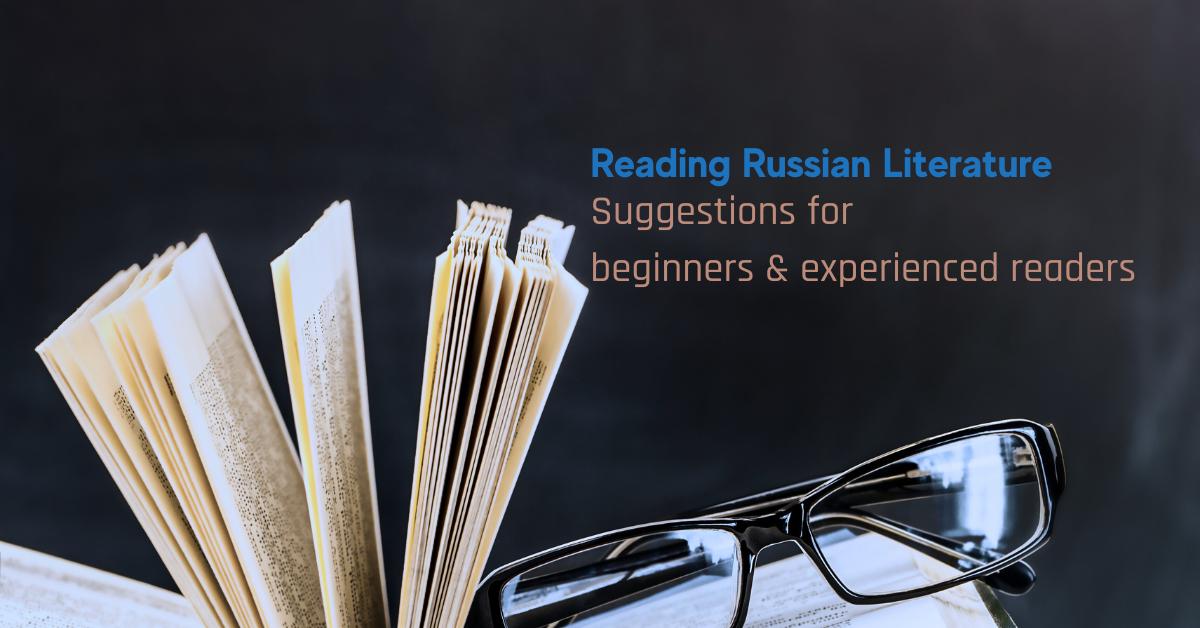Want to read Russian Literature? Here is your essential guide, best books to begin with, and authors you must read
Russian Literature is distinguished in the global literary canon due to its profound exploration of the human condition, unique historical and cultural perspectives, and rich, complex narratives. Renowned for its depth and philosophical intensity, Russian Literature delves into existential questions, moral dilemmas, and social critiques with a sincerity and gravity that distinguish it from other literary traditions. The works of iconic authors such as Fyodor Dostoevsky, Leo Tolstoy, and Anton Chekhov offer unparalleled insights into the psyche, presenting characters and situations that are both deeply personal and universally resonant. This Literature’s ability to convey the intricacies of the human spirit against the backdrop of Russia’s tumultuous history renders it not only different but profoundly impactful, offering readers worldwide a timeless reflection on life, suffering, and the quest for meaning.
Why one must read Russian Literature?
One must read Russian Literature to gain a profound understanding of the human experience, as it presents some of the most profoundly insightful and emotionally resonant works in literary history. Russian authors like Fyodor Dostoevsky, Leo Tolstoy, and Alexander Pushkin explore universal themes such as morality, redemption, love, and the individual’s struggles within society, often against the backdrop of Russia’s unique socio-political landscape. Russian novels’ psychological depth and philosophical intensity challenge readers to reflect on their beliefs and values, fostering greater empathy and comprehension of life’s complexities. Additionally, the rich, often poetic language and intricate character development typical of Russian Literature offer a reading experience that is both intellectually stimulating and profoundly moving, making it an essential pursuit for anyone seeking more profound literary and cultural enrichment.

Russian Literature: how to begin reading?
Due to its depth and complexity, beginning a journey into Russian Literature can be rewarding yet challenging. For those starting, it is advisable, to begin with works that offer a glimpse into the richness of Russian literary traditions without being overwhelmingly dense.
Authors and Books for Beginners:
1. Alexander Pushkin – Often considered the father of Russian Literature, Pushkin’s novella “The Queen of Spades” and his verse novel “Eugene Onegin” provide a good starting point due to their engaging narratives and relatively accessible language.
2. Nikolai Gogol – His short story collection “The Overcoat and Other Short Stories” or the satirical novel “Dead Souls” can introduce readers to Russian Literature’s humour and social commentary.
3. Ivan Turgenev – “Fathers and Sons” is a novel that offers insight into generational conflicts and is praised for its straightforward prose and compelling character studies.
4. Anton Chekhov – Renowned for his short stories and plays, collections like “Ward No. 6 and Other Stories” or “The Cherry Orchard,” the play provide a digestible yet profound entry into Russian literary themes.
Differentiating the Experience for Beginners and Experts:
For beginners, reading Russian Literature can be an introduction to new cultural contexts and narrative styles. The focus is often on understanding the basic plots, familiarising oneself with the historical and cultural backdrop, and appreciating the emotional and philosophical depths at a more accessible level. Beginners might benefit from annotated editions, or companion guides providing context and explanations for historical references and cultural nuances.
Expert readers, on the other hand, delve deeper into the intricate layers of symbolism, philosophical discourse, and literary techniques employed by the authors. They engage with the texts on multiple levels, analysing themes such as existentialism, spirituality, and the socio-political commentary inherent in the narratives. Experts often appreciate the subtleties of language, the historical allegories, and the complex interplay between characters and the broader societal issues depicted in the Literature.
Overall, starting with the more accessible works of key Russian authors allows beginners to gradually build an understanding and appreciation of the rich tapestry of Russian Literature, eventually leading to a deeper, more nuanced exploration as their familiarity and comprehension grow.
Best of the Russian Literature for Expert Audience:
For readers well-versed in literary intricacies, delving into the masterpieces of Russian Literature offers a profound and enriching experience. These works are renowned for their depth, complexity, and philosophical richness, providing ample material for deep analysis and reflection. Some of the best authors and their significant works include:
- 1. Fyodor Dostoevsky:
“Crime and Punishment”: A psychological exploration of guilt and redemption through the story of Raskolnikov, a young man who commits murder.
“The Brothers Karamazov”: It is a complex narrative that addresses themes of faith, doubt, and morality, centred around the tumultuous relationships within the Karamazov family.
“The Idiot”: A novel examining the consequences of purity and goodness in a corrupt world through the character of Prince Myshkin. - 2. Leo Tolstoy:
“War and Peace”: An epic novel that intertwines the lives of several families against the backdrop of the Napoleonic Wars, exploring themes of fate, free will, and the search for meaning.
“Anna Karenina”: A tragic love story that delves into the intricacies of Russian society, family dynamics, and individual morality. - 3. Anton Chekhov:
“The Cherry Orchard”: A play that combines comedy and tragedy to depict the decline of an aristocratic family and the changes in Russian society.
“The Lady with the Dog”: A short story that explores themes of infidelity and the search for genuine human connection. - 4. Mikhail Bulgakov:
“The Master and Margarita”: A satirical and fantastical novel that critiques Soviet society while blending supernatural elements with retelling the story of Pontius Pilate and Jesus. - 5. Ivan Goncharov:
“Oblomov”: A novel that critiques the Russian aristocracy and the lethargy and indecision embodied by its protagonist, Oblomov. - 6. Nikolai Gogol:
“Dead Souls”: A satirical novel that offers a biting critique of Russian society through the adventures of Chichikov, a man attempting to buy deceased serfs to gain social status.
“The Government Inspector”: A play that humorously exposes the corruption and incompetence of provincial officials. - 7. Boris Pasternak:
“Doctor Zhivago”: A novel that intertwines a love story with the tumultuous events of the Russian Revolution and the subsequent Civil War, exploring themes of individuality and the passage of time. - 8. Aleksandr Solzhenitsyn:
“One Day in the Life of Ivan Denisovich”: A stark portrayal of life in a Soviet labour camp, highlighting the resilience of the human spirit.
These works and authors represent the pinnacle of Russian literary achievement, offering sophisticated readers the opportunity to engage with profound existential questions, intricate character studies, and detailed social critiques. Each of these texts provides rich material for analysis, inviting readers to explore the complexities of human nature and the socio-political landscapes of their times.
And, at last…
With its profound depth, philosophical rigour, and intricate narratives, Russian Literature offers an unparalleled window into the human condition, making it an essential pursuit for any serious reader. Starting with more accessible works by Alexander Pushkin, Nikolai Gogol, and Anton Chekhov, beginners can gradually build their understanding of the rich cultural and historical context that shapes these stories. For those adept at navigating literary complexities, the masterpieces of Fyodor Dostoevsky, Leo Tolstoy, and Mikhail Bulgakov provide a more profound exploration of existential themes, moral difficulties, and the societal intricacies of their time. Russian Literature’s unique ability to delve into the psyche and present characters grappling with universal questions of morality, faith, and identity makes it profoundly impactful. It mirrors Russian society and is a timeless reflection of human nature. The works of Tolstoy and Dostoevsky, with their epic narratives and deep philosophical underpinnings, challenge readers to confront their beliefs and values, fostering a greater empathy and understanding of life’s complexities.
Meanwhile, the satirical and fantastical elements in Gogol and Bulgakov’s writings offer sharp social critiques wrapped in engaging and often humorous storytelling. By immersing themselves in Russian Literature, readers are not only exposed to some of the greatest literary minds. Still, they are also invited to explore the rich tapestry of human emotions and societal structures, encouraging a deeper appreciation of individual and collective experiences. Thus, the journey through Russian Literature is not merely an academic exercise but a profound and enriching experience that enhances empathy, critical thinking, and cultural awareness. Whether you are a novice or a seasoned reader, the works of Russian Literature promise to leave an indelible mark on your intellectual and emotional landscape, making them an indispensable part of any literary exploration.
By Ashish for Desi Readers
